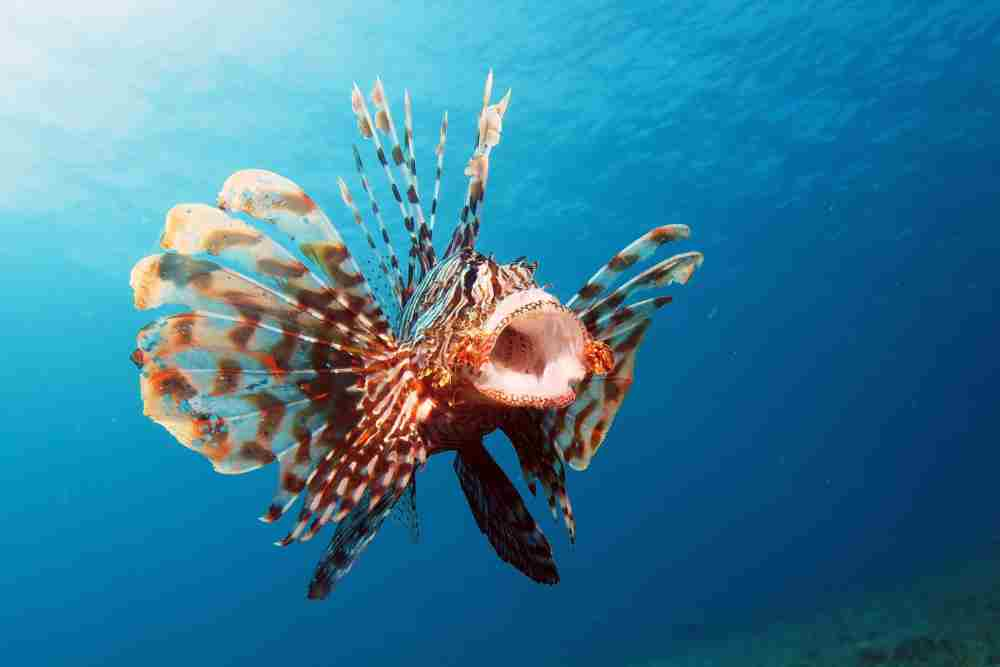Fish do not yawn; yawning in fish is not a known behavior. Fish do not have the physical structure or the neural mechanisms required for yawning, making it an absent behavior in their repertoire.
Yawning is typically associated with higher vertebrates, including mammals and birds, and serves various functions such as regulating brain temperature and promoting alertness.
Although fish may display behaviors that resemble yawning, such as opening and closing their mouths, these actions are usually related to feeding or respiration rather than yawning.

Do Fish Yawn?
Fish yawning is a common behavior observed in certain species. It is not a result of tiredness, but rather serves a specific purpose. Yawning in fish typically aids in respiration by allowing them to take in more oxygen through their gills.
It is a way for fish to compensate for any loss of oxygen in their aquatic environment. This behavior is especially noticeable in fish that reside in oxygen-depleted waters.
Yawning in fish differs from that in humans and other animals, as it does not involve the stretching of muscles or the opening of the mouth wide.
Instead, fish yawn by briefly opening and closing their mouths.
Do Great White Shark Yawn?
Great white sharks, known as the apex predators of the ocean, are fascinating creatures. Do they yawn? While it may seem unusual, research suggests that great white sharks do indeed yawn. The purpose of this behavior, however, remains a topic of debate among scientists.
One potential reason for shark yawning is the need to open their jaws for regular maintenance. This allows them to keep their teeth in optimal condition and remove any debris that may have accumulated. Another possibility is that yawning helps regulate the pressure in the shark’s inner ear, aiding in their sensory perception.
Although more studies are needed to fully understand the reasons behind shark yawning, it highlights the complexity and intrigue of these magnificent creatures.
Do Betta Fish Yawn?
Betta fish, also known as Siamese fighting fish, are renowned for their vibrant colors and feisty nature. One interesting aspect of betta fish behavior is their yawning habits. These fish may appear to be yawning, but in reality, they are not.
The opening and closing motion of their mouths is a natural behavior that helps them stretch their jaw muscles. This action also assists in increasing oxygen intake through their gills. While it may look like a yawn, betta fish are not yawning due to tiredness or boredom.
Understanding the various behaviors of these captivating creatures allows us to appreciate their unique characteristics. Their vibrant colors and the way they interact with their surroundings truly make betta fish a colorful fighter in the world of aquatic pets.
Fish Yawning In Captivity
Fish yawning in captivity is an interesting phenomenon that has caught the attention of researchers. The yawning patterns observed in aquarium fish have raised questions about the potential causes behind this behavior. One possible explanation is the impact of stress and the environment on fish yawning.
It is believed that captivity and confinement can lead to increased yawning in fish. The stressors of an artificial environment, such as limited space and lack of stimulation, may contribute to this behavior. Additionally, changes in water quality or temperature fluctuations can also trigger yawning in fish.
Understanding the reasons behind fish yawning in captivity can provide valuable insights into their well-being and help ensure their optimal care in aquarium settings.
Frequently Asked Questions
Why Do Fish Look Like They Yawn?
Fish look like they yawn because they often open and close their mouths to regulate oxygen intake.
Do Aquatic Animals Yawn?
Yes, aquatic animals do yawn.
Do Insects Yawn?
Yes, insects do yawn. It is a common behavior observed in various insect species.